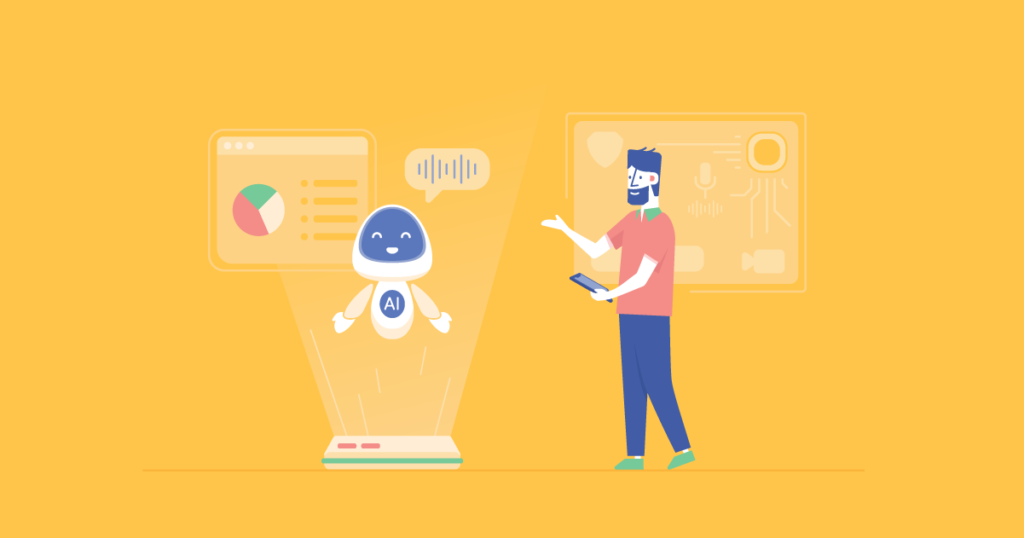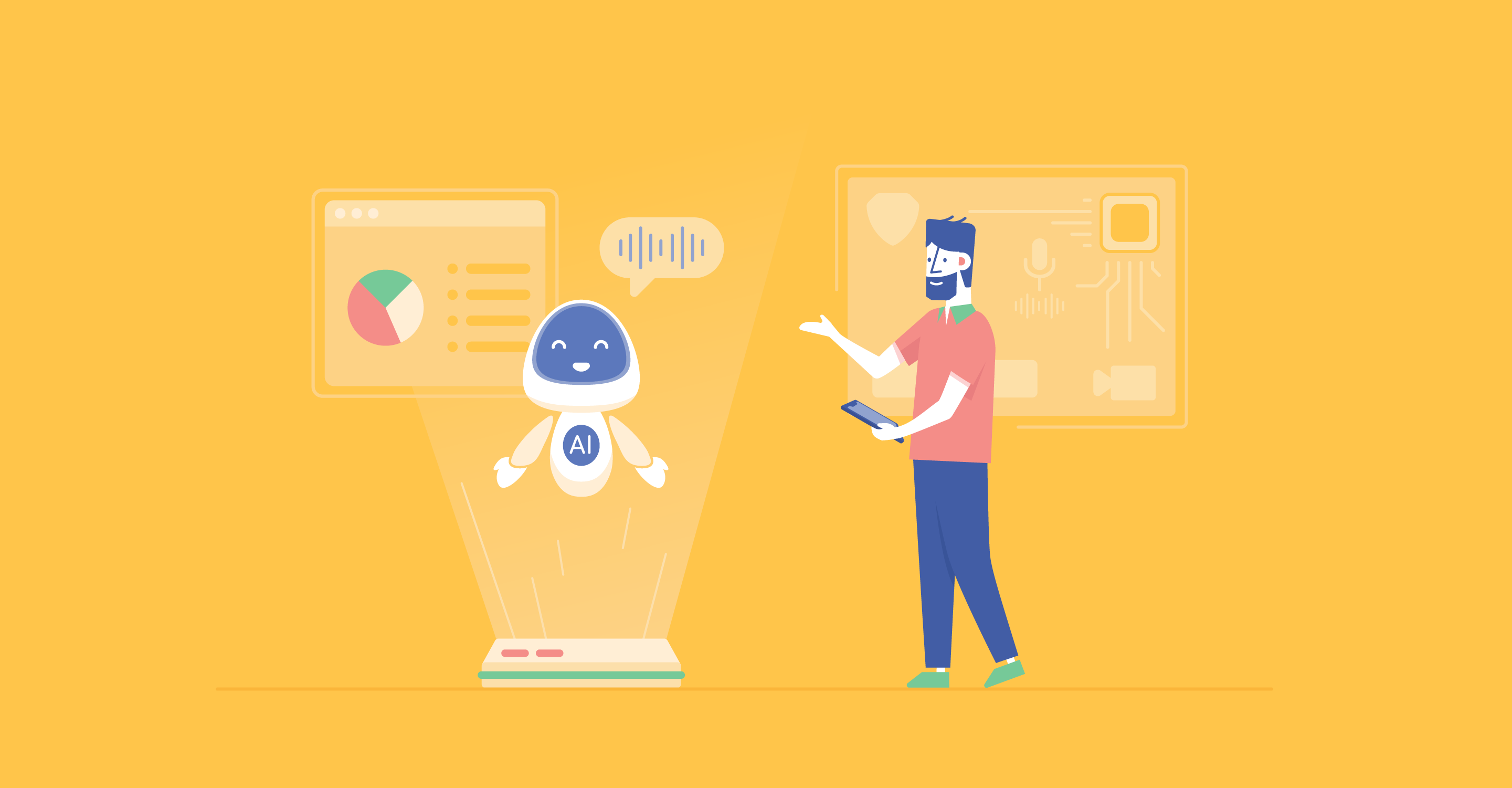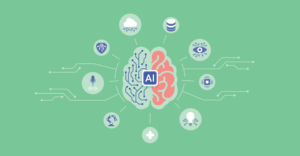If you’re a regular blog reader, you’re probably already aware that when it comes to artificial intelligence, its current state of development is severely misunderstood. Sadly, however, this matter is not helped at all by the many cash-eying marketers who are still promoting the myth that you can purchase sentient tech products. Yes, actual artificial intelligence, as it turns out, remains a developer’s pipe dream, as with our current AI capabilities, you are much more likely to create a never-ending death metal stream than to earn a medal for breathing life into a machine. But how to work with AI today — which really should be referred to as machine learning, by the way — and what can companies reasonably expect from the most probable future ahead? In today’s article, Software Planet Group will take a candid look.

Benefits of Artificial Intelligence in Business
First and foremost, when seeking to work with AI, it is important to be fully aware that beyond the realm of automation, there are a number of noteworthy benefits awaiting companies who embrace the technology:
1. Improved speed
If time is money, then why not give your business processes their very best chance at optimisation? After all, machine learning provides companies with the ability to streamline decision making, speed up complex activities and perform mindless tasks with utmost efficiency. Even in the realm of software development, we are constantly improving our operations with ML algorithms to turbocharge speed.
2. Improved monitoring
Whether aiming to improve patient monitoring, automate video surveillance, or keep an eye on important databases, with the help of artificial intelligence, we can easily detect changes the very minute that they take place, and act accordingly either manually or automatically.
3. Reduction of human error
The term “human error” was coined for a reason! But while our fleshy brains are far from perfect, AI systems have a penchant for accuracy and are increasingly sharp and sophisticated.
4. Better productivity
Smart, targeted automation comes with some major knock-on advantages, as your workforce will be free to focus on your company’s core priorities.
5. Business Model Expansion
And finally, few technologies are more disruptive than machine learning and artificial intelligence, as they come with the unavoidable potential of completely reinventing your old business model.
It Started With a Game
That being said, to understand where we really are today, it would be helpful to examine one of the leading AI enterprises: the originally British, now Google-owned project DeepMind. The theory behind the project was simple, that because human beings will typically excel at logic and maths, if a computer could be taught to do the same, then maybe the rest would just fall into place.
DeepMind’s original creator, Researcher Demis Hassabis, was heavily inspired by IBM’s Deep Blue computer. After all, in 1997, the computer had become the de facto world chess champion, having beaten the human title holder in a staggering six-game rematch.
Although DeepMind took this one step further in 2016 by achieving the same with Go — the most complex game known to mankind — had the board been changed just a fraction to a simpler or smaller variety, DeepMind would have suffered a humiliating defeat. This serves to illustrate an important concept: that AI systems are still hopelessly limited to the information human beings feed into them.
Most AI systems will depend on human trainers
In fact, human trainers are often needed to teach ML algorithms to perform their tasks. This is done through so-called training data which must be gathered to teach medical applications to detect disease, voice assistants to understand run-of-the-mill expressions, and recommendation engines to support users in making wiser financial decisions. In addition, AI systems must be trained to interact with humans. Think of Amazon’s Alexa assistant. Not only did she require extensive training to develop the right tone and personality — helpful, confident with a hint of cheekiness to boot — but implementing all of these features took long hours of hard graft and dedication by a varied team of talented professionals.
Similarly, because chatbots and voice assistants are increasingly being created to facilitate communication with humans, it is equally important for developers to come up with ethical norms for AI. For instance, whilst automation is exceptional at augmenting human capabilities, if it is never taught to do away with bias, then it may also augment discrimination.
The Best of AI Working With Humans
Conversely, work with AI in manufacturing has also given rise to some of the very best of human-machine collaboration, as robots are continuously evolving from more traditional heavy-duty machines to intelligent, context-aware “cobots.” A cobot could, for instance, take care of repetitive actions that require heavy lifting, while a human worker performed complementary tasks that would in turn call for dexterity and judgment — such as assembling a motor, or another complex piece of equipment.
Such harmonious collaboration has unavoidably led to an enormous amplification of ideas, and particularly in data-heavy industries, the AI economy looks set to have a massive boom. This is hardly surprising, as AI systems boost analytic capabilities in virtually every industry today and deliver cutting-edge automation for both startups and established businesses.
Benefits of Artificial Intelligence in Healthcare
In healthcare settings, artificial intelligence technologies have already made a massive impact. Thanks to “computer vision” or image classification, machines can now correctly identify objects, people, colours, and their positions in relation to others. Pair this with modern-day NLP tools and computers are even able to behold an image put before them and express in words what they are “seeing.” As a result, in oncology, for instance, we are already able to provide patients with more accurate diagnoses by fully automating blood cell counts and helping doctors to spot infections. This enables healthcare providers to save lives by acting faster. Other noteworthy benefits include improved accessibility, AI assistance in surgery and AI mental health support.
Benefits of Artificial intelligence in Education
Machine learning is also anticipated to revolutionise education. This is seen in personalised learning, where AI is providing schools with a better understanding of how their students take in information, enabling teachers and educators to customise the curriculum accordingly; intelligent moderation, which affords tutors, moderators and teachers with the technical means to moderate more effectively by analysing large group data and making decisions based on the feedback they receive; custom textbooks, where educators import syllabi to generate textbooks filled with core educational content; and intelligent tutoring systems which can utilise clever algorithms to educate pupils without a teacher.
Benefits of Artificial Intelligence in Finance
In the world of finance, by finding irregularities in patterns, ML and AI-based solutions can quickly identify all forms of fraud. This is done through both monitoring and scoring tens of millions of transactions daily, using data on customer behaviour, purchase location, IP addresses and other information. They can also increase cost savings with the help of chatbots for customer support which enable companies to offer 24/7 customer interactions.
Benefits of Artificial Intelligence in Society
Finally, societally speaking, the benefits of work with AI are only beginning to be understood. Already, artificial intelligence performs tedious tasks that leave us humans feeling empty and unfulfilled. This enhances our life in general, as more creative roles take centre stage. AI can also enable governments to make decisions using real-time data and combine information from different sources to increase adaptability and survival rates. Best of all, however, artificial intelligence paves the way for a fully realised circular economy, which ensures that the future is built on more sustainable and solid foundations that guarantee the future of the human race.
Work With AI: The Endgame
Until then, however, so-called artificial intelligence will only remain as “smart” as we make it. Though a degree of perceived intelligence exists, this is more like a professional illusionist who is attempting to convince you of his magic, as it is certainly in no way organic and does not function like the human brain. Nevertheless, the future looks bright for machine learning software applications, so if natural language processing, computer vision or intelligent feedback sound appealing to your company, get in touch with Software Planet Group and our developers will be happy to help!



